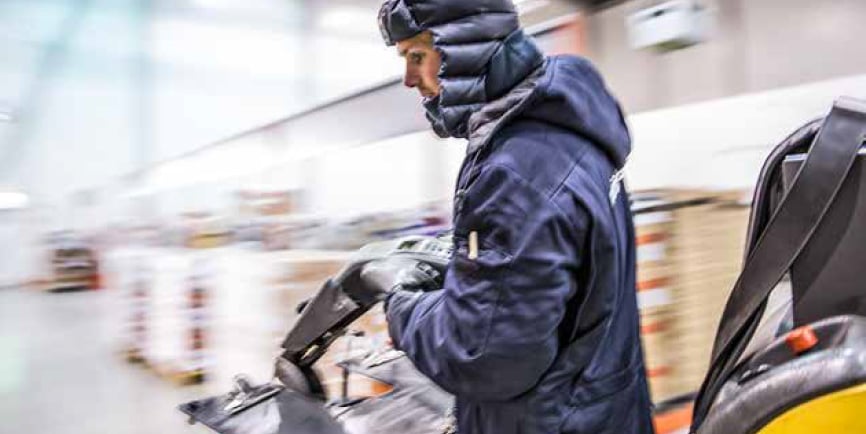
Winter has well and truly arrived, and it's time to wrap up warm, switch the heating on and start scraping the car in the mornings.
But when the temperature drops below zero, spare a thought for forklift operators working in cold stores — where temperatures can be as low as -35°C all year round.
Working in these extreme environments isn't easy on the workers. High-performance thermal clothing is a must to avoid hypothermia or frostbite, and heated truck cabins may be required if drivers are spending long shifts inside the cold store.
However, these kinds of temperatures place some major stresses on the truck as well, which can cause huge problems for the operation if not managed properly.
Battery capacity
Low temperatures can significantly affect the capacity of lead-acid batteries. The temperature at which the capacity is reduced is fairly high — a battery loses about 1% of its capacity per degree below 20°C. However, at extremely low temperatures, this issue is much more easily noticed. In a cold store where the temperature is -35°C, the battery could have less than half of the capacity it would have at room temperature if no precautions are taken. Lower capacity means more frequent battery changes, which creates problems with condensation building on trucks.
Oil viscosity
The lower the temperature, the thicker and more viscous the oil that lubricates the truck's moving parts becomes. This can lead to mechanical problems that must be fixed, causing downtime. For specially adapted cold store trucks, lubricants which are more cold-resistant are used, but it's still a point worth thinking about.
Metal brittleness
Extreme temperatures can even make metal more brittle, especially in welding joints. This may not be noticeable under normal conditions, but when lifting hundreds of kilograms high off the ground, it could even be dangerous. Manufacturers like UniCarriers will always ensure that the quality of the welds and steel used on the trucks will be able to cope with -35°C, so your choice of supplier is vital.
It's always going to be challenging working in temperatures lower than they are at the North Pole, but by working closely with your forklift supplier to find the best equipment solution, you can at least make sure that your trucks will be up for the job.
Interested in finding out more about the challenges of working in the most extreme of materials handling environments? Click the button below to get our cold store guide, and learn about the issues that condensation can create, and how to prevent them occurring.







































Comment